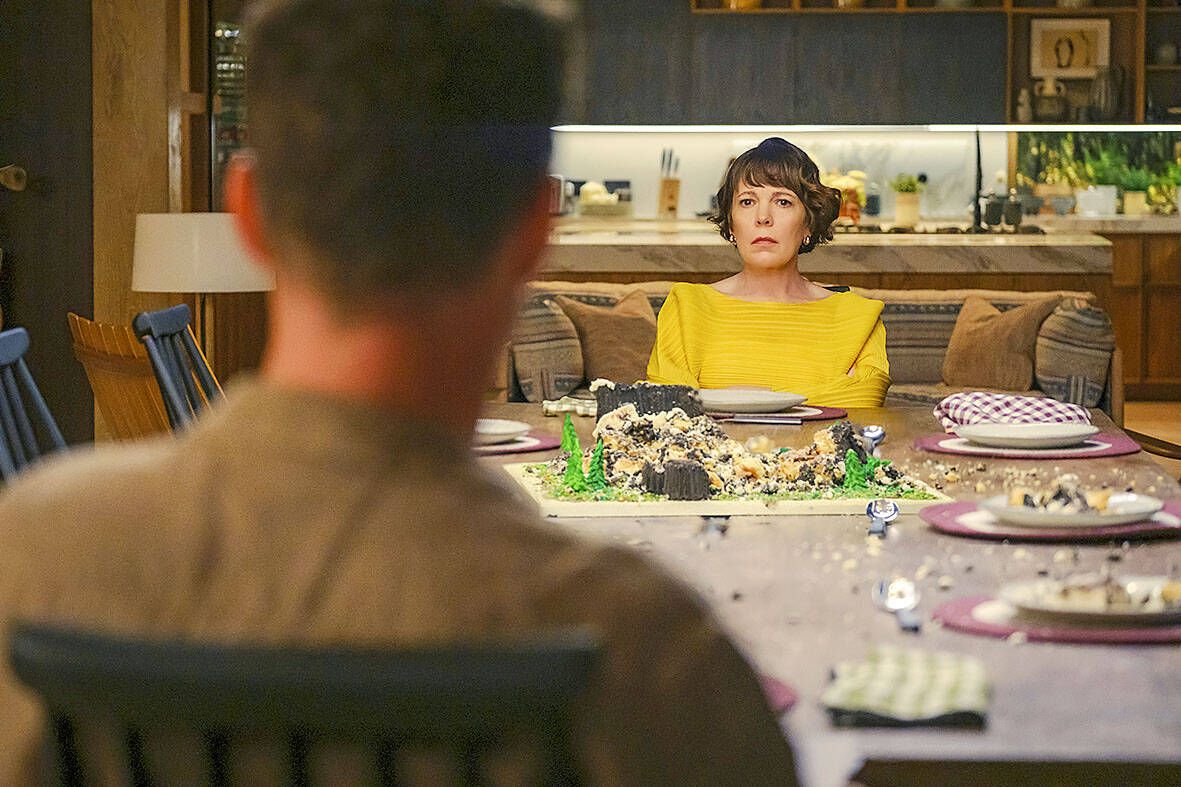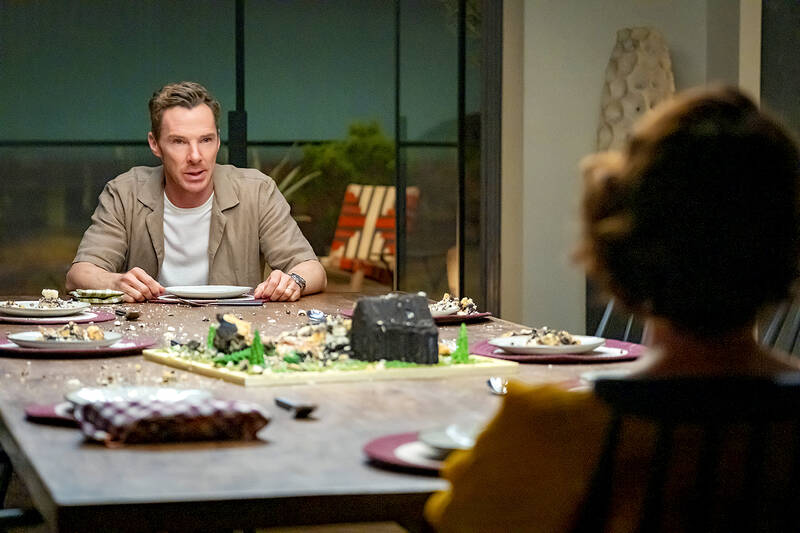Olivia Colman and Benedict Cumberbatch, the two most prestigious English screen actors in the world, resoundingly butt heads in this feel-bad movie; it is oddly, but not uninterestingly, composed throughout in feelgood romcom style. In casting terms, this is a Borg-McEnroe 10-set tie-break leading to play being suspended even as the leads bring every microliter of their technique to the game.
They play Ivy and Theo, two high-achieving professionals whose marriage becomes a black-comic Chornobyl of toxic hate; it is adapted from the 1981 novel The War of the Roses by Warren Adler, which was previously filmed in 1989 with Kathleen Turner and Michael Douglas. Tony McNamara writes this new version and the director is Jay Roach, known for Austin Powers and Meet the Parents. Colman and Cumberbatch are acting black-belts and they are never anything other than watchable, but as they shout and wince and snap and zing their way through the dialogue, it’s difficult to believe that they really love each other; and then later really hate each other. The film loses its nerve on this latter point.
The new version keeps a little more of the novel, in the sense that Ivy is supposed to be a brilliant chef, but it upends some of the original’s classic divorce talking points about a woman sacrificing her career for family and the husband’s professional status, and also therefore the traditional acrimony about who gets to keep the house. In this movie, Theo is an architect, not a lawyer, whose career collapses along with his most famous building and he becomes the househusband looking after the kids while Ivy becomes a globally celebrated foodie; she comes to despise her husband’s resentful beta-male loser identity and his ungrateful attitude when she bankrolls his designs for a new hi-tech family home.

Photo: AP
Weirdly, this sophisticated English guy is supposed to be fanatically coaching the kids in athletic prowess so they leave home early, in their mid-teens, not for college, but for some cloudily imagined sports institution. The children need to be got out of the way so the grownups’ battle can kick off, of course, but this is a peculiar and unconvincing contrivance, maybe there to position the couple as younger than in the original. (Surely people like this would have their eyes on Ivy League glory?)
There are, of course, some nice lines. Theo says sadly: “When we were younger, I knew what she was going to say before she said it. Now I don’t know what she’s said after she’s said it.”
There is a lot of angry acting and a fair bit of drunk acting; at one stage, Theo gets plastered on a flight to New York, to Ivy’s aghast embarrassment, and then she gets drunk in New York, finally throwing up in the bath, to Theo’s icy resentment. The difference is between loser-drunk and winner-drunk, but it doesn’t exactly test the range of these brilliant actors. Their friends Barry and Amy are played in supporting roles by Andy Samberg and Kate McKinnon, great comic performers who don’t get much funny material. Ncuti Gatwa plays a sous chef in Ivy’s cafe and Alison Janney is her formidably aggressive divorce lawyer.

Photo: AP
The movie has a high gloss and sheen, like something by Nancy Meyers, which creates a diverting disconnect, yet it flinches from the recognizable, tragicomic reality of a bad marriage.

Photo: AP

Photo: AP

In the next few months tough decisions will need to be made by the Taiwan People’s Party (TPP) and their pan-blue allies in the Chinese Nationalist Party (KMT). It will reveal just how real their alliance is with actual power at stake. Party founder Ko Wen-je (柯文哲) faced these tough questions, which we explored in part one of this series, “Ko Wen-je, the KMT’s prickly ally,” (Aug. 16, page 12). Ko was open to cooperation, but on his terms. He openly fretted about being “swallowed up” by the KMT, and was keenly aware of the experience of the People’s First Party

Aug. 25 to Aug. 31 Although Mr. Lin (林) had been married to his Japanese wife for a decade, their union was never legally recognized — and even their daughter was officially deemed illegitimate. During the first half of Japanese rule in Taiwan, only marriages between Japanese men and Taiwanese women were valid, unless the Taiwanese husband formally joined a Japanese household. In 1920, Lin took his frustrations directly to the Ministry of Home Affairs: “Since Japan took possession of Taiwan, we have obeyed the government’s directives and committed ourselves to breaking old Qing-era customs. Yet ... our marriages remain unrecognized,

During the Metal Ages, prior to the arrival of the Dutch and Chinese, a great shift took place in indigenous material culture. Glass and agate beads, introduced after 400BC, completely replaced Taiwanese nephrite (jade) as the ornamental materials of choice, anthropologist Liu Jiun-Yu (劉俊昱) of the University of Washington wrote in a 2023 article. He added of the island’s modern indigenous peoples: “They are the descendants of prehistoric Formosans but have no nephrite-using cultures.” Moderns squint at that dynamic era of trade and cultural change through the mutually supporting lenses of later settler-colonialism and imperial power, which treated the indigenous as

Standing on top of a small mountain, Kim Seung-ho gazes out over an expanse of paddy fields glowing in their autumn gold, the ripening grains swaying gently in the wind. In the distance, North Korea stretches beyond the horizon. “It’s so peaceful,” says the director of the DMZ Ecology Research Institute. “Over there, it used to be an artillery range, but since they stopped firing, the nature has become so beautiful.” The land before him is the demilitarized zone, or DMZ, a strip of land that runs across the Korean peninsula, dividing North and South Korea roughly along the 38th parallel north. This